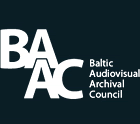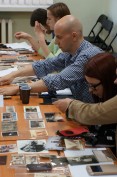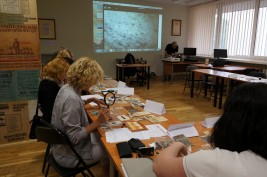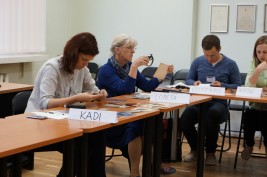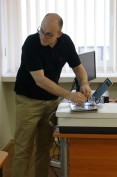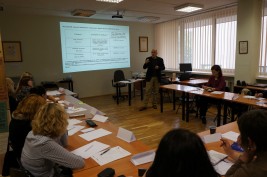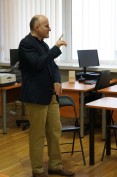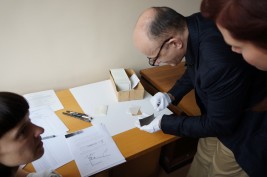International Photography Conservation Workshop

June 2016, Vilnius
Today audiovisual documents amount to a large part of world memory and are found in many different memory institutions. The main issue of the audiovisual collection’s preservation policy in many libraries, archives and museums is digitization. It is accepted as one of the most suitable and almost universally applicable decisions in this field of activity. At the same time, the preservation, restoration, conservation of analogue audiovisual documents sometimes seems to be of lesser importance, and thus gets less attention. But it is still a very important issue for many specialists in memory institutions. While trying to safeguard valuable audiovisual collections, they face various problems and a lack of experience. Unfortunately, many choose the simplest way – to digitize documents, and leave analogue carriers to natural degradation. This can be said especially about photography, which amounts to the largest part of audiovisual collections in memory institutions, as it is very easy to transfer them to digital format.
Seeking to give opportunities for memory institutions’ specialists to get acquainted with actual questions of handling, conservation and preservation of analogue photography, the Baltic Audiovisual Archival Council (BAAC), together with the Archivists’ Association and Lithuanian Central State Archive organized the International Photography Conservation Workshop in Vilnius 20-21 June, 2016. It was hosted by the Lithuanian Central State Archive. Specialists from Lithuanian, Latvian and Estonian archives, libraries and museums participated in the workshop. This was led by well-known specialist Professor Bertrand Lavédrine.
Bertrand Lavédrine is a professor at the Muséum National d'Histoire Naturelle, Paris (France), and the Director of the Centre de Recherche sur la Conservation des Collections (CRCC) since 1998. He teaches conservation science, preventive conservation and preservation of audio-visual collections. He has written many papers and six books on the preservation of early photographs in French, English and Spanish. Bertrand Lavédrine has received awards for his works, such as the European Prize for Innovation and the Kraszna-Krauz Photography Book Award.
The first day of the workshop was dedicated to the history of photography. Professor Lavédrine introduced the main development stages, materials used and technologies of the 19th and 20th Centuries. The specialists from memory institutions got much theoretical and practical information about each material and technology used in analogue photography, their similarities and differences, advantages and disadvantages. In practical classes, participants of the workshop were given different photographs and asked to recognize their creation periods, materials, processes and technologies.
The second day of the workshop was dedicated to the preservation and publication of analogue photography. The professor named the main threats for the safeguarding of analogue photography collections – natural aging of carriers caused by various chemical processes and the influence of environment. Memory institutions’ specialists face these threats every day, so it is very important to not only identify, but also reduce them while managing risks. The lecturer of the workshop introduced various decisions on how to enlarge the life expectancy of photographic carriers, which materials should be used for storage, and how to properly exhibit analogue photographs. At the end of the workshop, participants had the opportunity to show examples of degrading analogue photography from their collections, and get practical advice on what to do.
At the end of the workshop, participants were asked to evaluate the programme, themes, handouts and relevance of the workshop. Summarizing the responses, it is a pleasure to mention that the workshop was very useful, with actual and important themes. Participants also expressed a desire to attend future workshops concerning the preservation of audiovisual heritage.
The International Photography Conservation Workshop was organized implementing the project of the same name. The project was partially financed by the Lithuanian Culture Council. The main goals of the project were, to introduce specialists from memory institutions to actual and practical decisions and practices concerning photographic handling, preservation and access; to contribute to the safeguarding of Lithuanian photographic heritage; to strengthen relations among the international photography specialist community, while making it possible to share experiences. According to the workshop’s organizers, all tasks of the project were successfully fulfilled.
 |
 |
 |
 |
